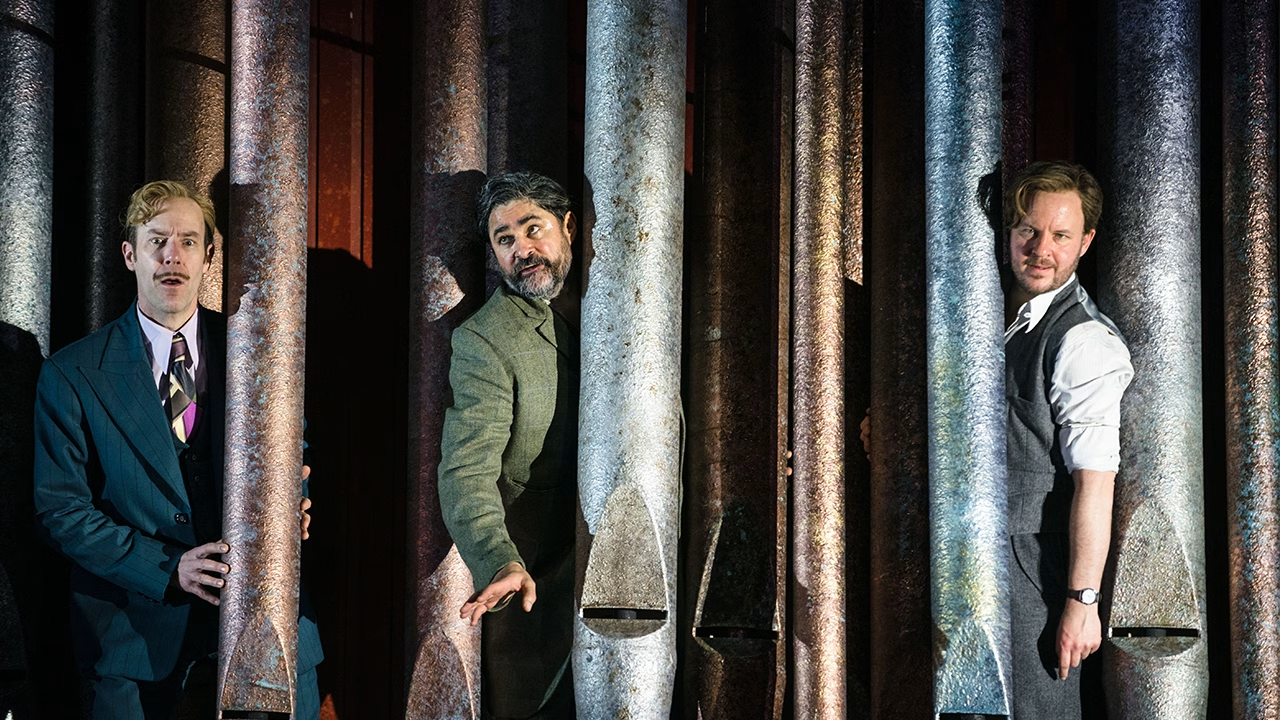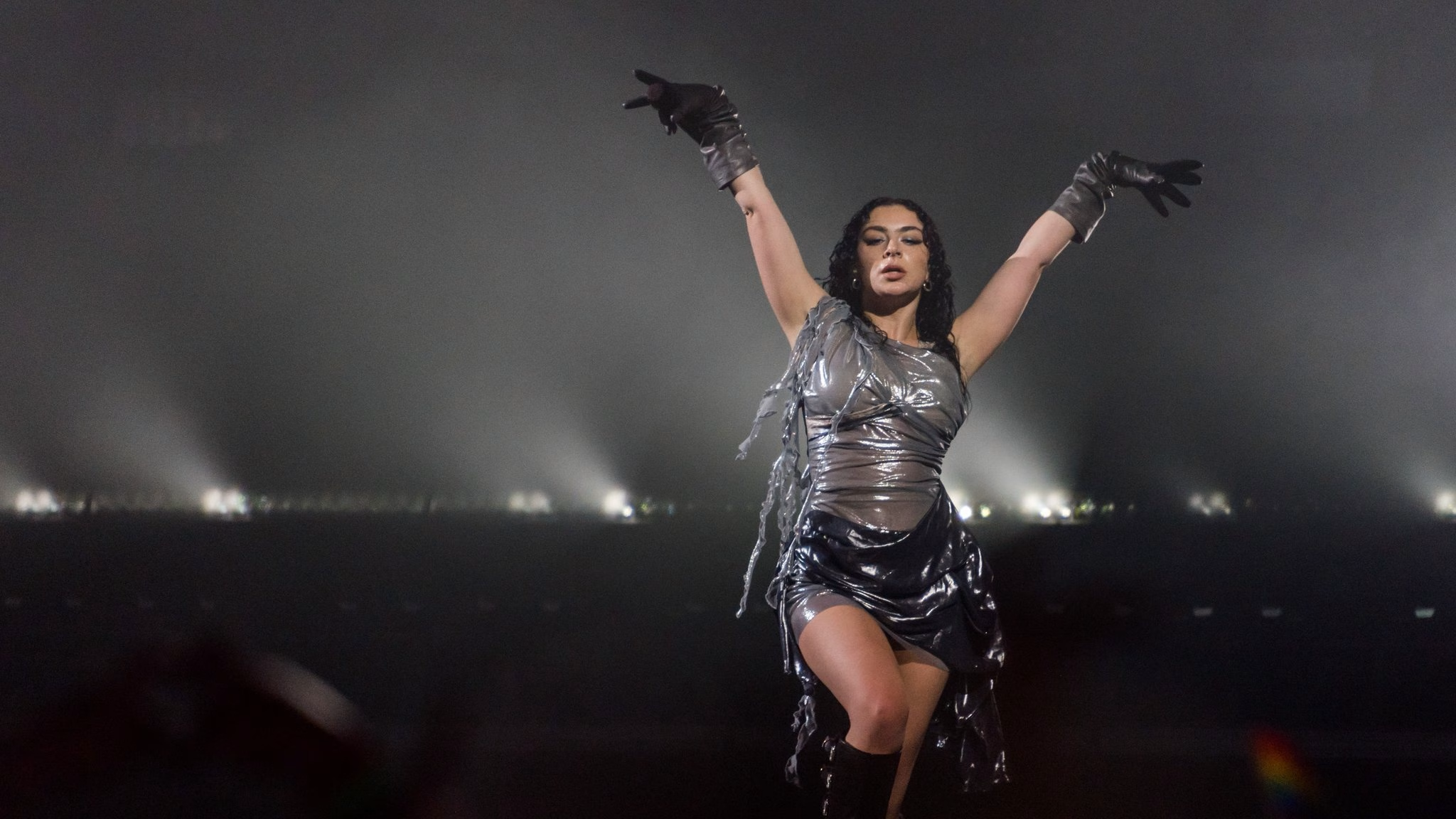In an early confrontation with Cesario—a mysterious suitor vying for her affection on someone else’s behalf—Olivia dramatically turns her back to the wall, her arm raised in a flourish of despair. After a brief pause, she spins around, her expression transformed into a charming smile as she strikes a delightfully exaggerated seductive pose.
Freema Agyeman’s portrayal captures the essence of Prasanna Puwanarajah’s latest interpretation of Twelfth Night. Following his successful revival of Venice Preserved for the Royal Shakespeare Company in 2019, Puwanarajah collaborates once again with designer James Cotterill, this time opting for the main stage to breathe new life into one of Shakespeare’s most enduring works. The outcome offers more than just a conventional view of Illyria; it prompts a thoughtful reinvigoration of the beloved play.
Familiarity can sometimes dull a play’s vibrancy, demanding fresh interpretations to reignite interest. This is especially true for Twelfth Night, which can easily fall prey to lazy staging. Directors often portray Malvolio as pompous yet comical, while Sir Toby Belch is rendered obnoxious and Sir Andrew Aguecheek foolish. Some witty lines from Feste get trimmed or overlooked, even as his presence remains essential for showcasing Shakespeare’s humor. The well-known scenes—Malvolio’s yellow stockings and the emotional reunion of Viola and Sebastian—may elicit laughter and tears, but they may leave audiences questioning what more can be offered.
The production kicks off conventionally by rearranging the opening scenes, with Gwyneth Keyworth’s Viola emerging as if recently washed ashore by the fateful waves that separated her from her twin. Orsino’s setting is revealed in a scene reminiscent of a Jack Vettriano painting, featuring elegantly dressed male attendants dancing to a sentimental tune. However, things take a darker turn. Joplin Sibtain’s hungover Sir Toby, discovered curled up on the ground by the assertive Maria (Danielle Henry), emerges not just as a comic figure but also as a potentially menacing character. Later, when surrounded by laughter and celebration, he broods in bitterness at Malvolio’s expense, suggesting a deeper unrest in Illyria.
This Twelfth Night shifts focus, illustrating Olivia’s household as a space enveloped in mourning. Demetri Goritsas’s Sir Andrew serves as a lightweight splash of color amidst the somber atmosphere. Olivia herself is introduced in grand style, arriving with her attendants just before the sound of a grand pipe organ, mimed by Feste (Michael Grady-Hall), resonates with mournful chords. The characters’ struggles—Sir Toby’s alcoholism, Olivia’s grief, and Feste’s restlessness—hint at a collective response to the tragic death of Olivia’s unnamed brother, the former count.
Puwanarajah’s direction emphasizes subtle tensions throughout the production. For instance, there’s a charged moment between Maria and Malvolio when their eyes first meet (or rather, don’t). Feste shares a similarly fraught connection with everyone else; when Viola perplexes him by calling him a “merry fellow” who “car’st for nothing,” he drops his jovial facade, revealing a wounded vulnerability. In Orsino’s court, Curio (Thom Petty) diminishes in comparison to the triumphant Cesario during a dance, only to awkwardly identify the arrested Antonio, hoping to win the duke’s favor. These nuanced details enrich the viewing experience.
Happily, the play balances its darker themes with lighter moments. Grady-Hall shines by infusing energy into the intermission through engaging audience participation and charming renditions of Shakespeare’s songs. West’s Malvolio carries an air of smugness, while Agyeman embodies elegant despair, flustered as she awkwardly attempts to flirt with Cesario. While one of Feste’s clever lines is missing in the final act, the conclusion is handled with creativity and heart. Even the most jaded critic may leave feeling tempted to catch another performance the following day.
There are thematic similarities between the RSC and Orange Tree productions, with both Olivias awkwardly reacting to the “parentage” query and both Malvolios expressing frustration over “humble slough.” The distinctive musical motif known as the Westminster Quarters, or “Pompey Chimes,” makes an appearance in both productions.
However, the scale and style differ significantly. The smaller 180-seat theater in Richmond could fit comfortably within the Stratford main stage. Instead of a grand pipe organ, the Orange Tree features a baby grand piano that dominates the space, revolving to serve various purposes throughout the play. Unfortunately, the piano sometimes detracts from Shakespeare’s dialogue; its heavy musical underscoring competes rather than complements, dulling the emotional resonance of key moments.
Despite the differences, the absence of certain characters—a notable absence of Fabian—hints at budgetary constraints. Such cuts, while providing more stage time for Asher’s character, result in a few elements feeling disjointed. The overall experience suggests a lack of rehearsal time, preventing a deeper dive into the characters’ motivations and dynamics. The production’s costume and design, evoking the postwar 1940s, create an atmosphere where Olivia’s brother becomes a casualty of the conflict. Tailcoats dominate the wardrobe, and scenes of dueling even nod to the humor of Dad’s Army.
In a cast dotted with variable performances, Clive Francis stands out as a quirky Sir Toby, while Oliver Ford Davies portrays a sluggish Malvolio, seemingly bewildered by Olivia’s command. Robert Mountford brings a hint of Hugh Laurie’s Bertie Wooster to Sir Andrew, painting him as an aging Dandy facing the prospect of marriage to secure his lazy future. Most notably, the audience is reminded of the theatre’s balcony only when Mountford ascends to entertain Viola with his spirited battle cries.













